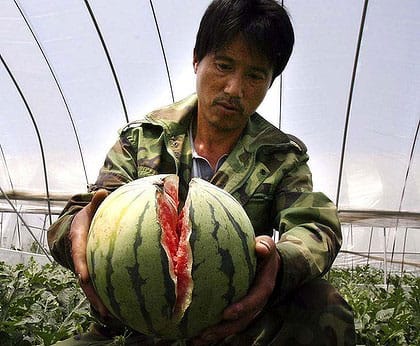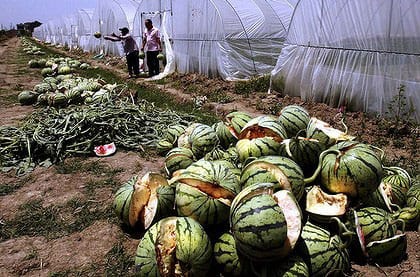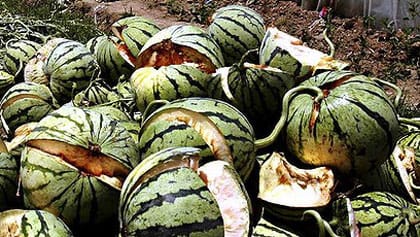|
|
The flying pips, shattered shells and fleshy shrapnel still haunt farmer Liu Mingsuo after an effort to chemically boost his fruit crop went spectacularly wrong. Field after field of watermelons exploded when he and other agricultural workers in eastern China applied a chemical growth accelerator. The report said that the farmers sprayed the fruit too late in the season and during wet conditions, which caused the melons to explode like landmines. The incident has become a focus of a domestic media drive Prices during the past year have prompted many farmers to jump into the watermelon market. All of those with exploding melons apparently were first-time users of the growth accelerator, though it has been widely available for some time. It follows discoveries of the heavy metal cadmium in rice, toxic melamine in milk, arsenic in soy sauce, bleach in mushrooms and the detergent borax in pork – to make it look like beef. Many farmers have started to grow their own food separately from the chemically raised crops they sell at the market.
But the report underscores how farmers in China In March last year, Chinese authorities found that “yard-long” beans from the southern city of Sanya had been treated with the banned pesticide isocarbophos. The tainted beans turned up in several provinces, and the central city of Wuhan announced it destroyed 3.5 tons of the vegetable.
The government also has voiced alarm over the widespread overuse of food additives like dyes and sweeteners that retailers hope will make food more attractive and boost sales. Though Chinese media remain under strict government control, domestic coverage of food safety scandals has become more aggressive in recent months, an apparent sign that the government has realised it needs help policing the troubled food industry. Source: Associated Press – 18 May 2011 |
|


